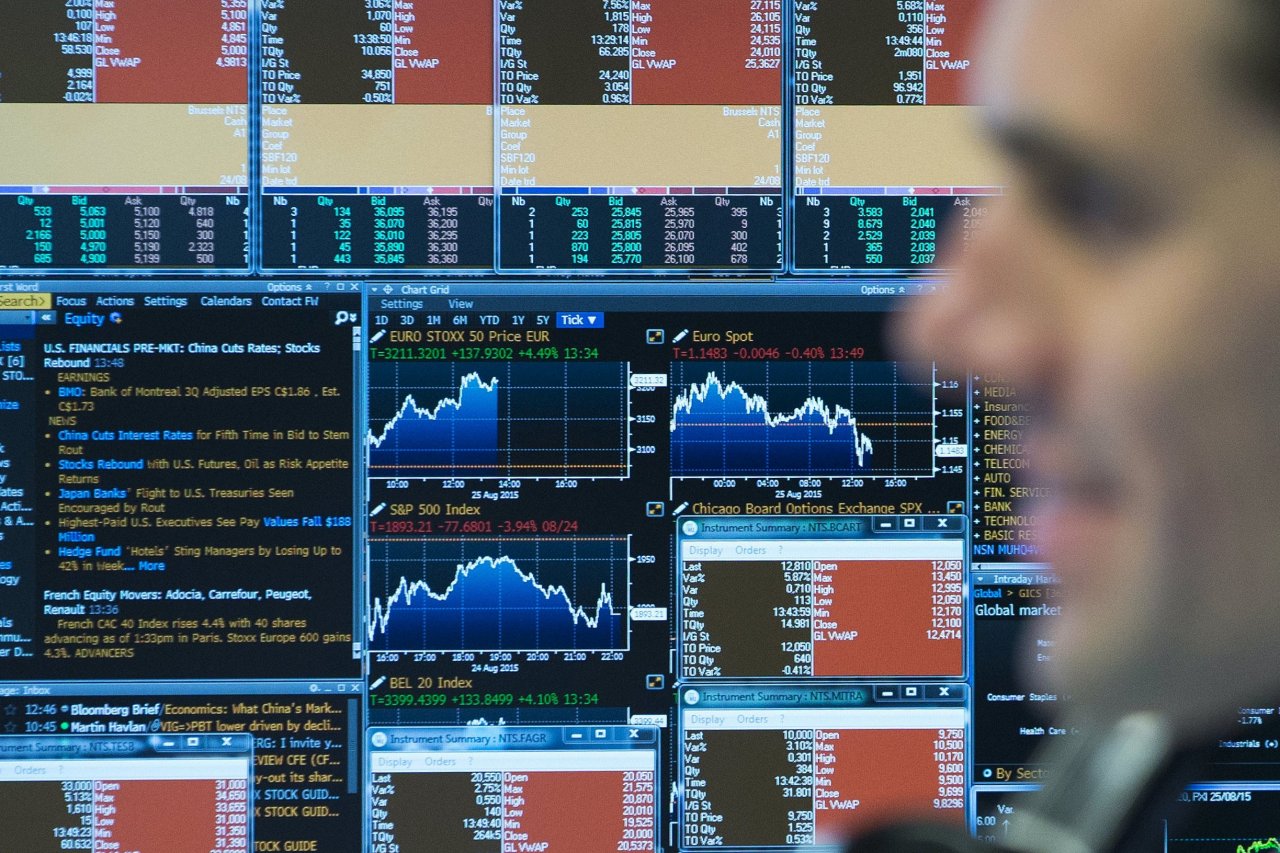The number of so-called experts yammering on television about China who know next to nothing about China has reached an all-time high. And for these pseudo-Sinologists, the verdict is in: China, the world's great growth story, is imploding. Its stock market plummeted—down five straight trading days between August 19 and 24—and its real economy is slowing. Because China is the second-largest economy and one of the U.S.'s biggest trading partners, some analysts say Beijing is going to drag it down with them.
Except it's not that simple. And for those of us who work in China as correspondents—particularly for those like me, who've been here a long time—that reaction has been nothing short of depressing. Apparently, no one reads anything we write.
The immediate cause of the market's volatility was an unexpected "devaluation" of China's currency—the renminbi—on August 10 and 11. For more than a decade, the renminbi had either been stable against the U.S. dollar or appreciated steadily. But when Beijing allowed it to sink by 3 percent over the course of two trading days, it seemed shocking—mainly because of what's going on elsewhere in the world. Two major currencies (the euro and the Japanese yen) and a whole host of minor ones (the Russian ruble, the Brazilian real, etc.) have been sharply devalued over the past couple of years. These devaluations have intensified deflationary pressures in the global economy, because goods and services, in dollar terms, have become less expensive. If China decides to join the beggar-thy-neighbor parade, and further weakens its currency to help its flagging export sector, I would be concerned.
That's how the markets took the news. But it's likely the wrong interpretation. Beijing eventually wants the renminbi to be more like the dollar: a currency that international trade is priced in and that foreign central banks hold as reserves. China also wants the renminbi to be part of the International Monetary Fund's special drawing rights scheme—a supplementary stash of foreign exchange to be used only in extreme circumstances. The IMF declined to admit the renminbi earlier this summer, saying the currency needs to be subject to market forces. At about 6.2 renminbi to the dollar, most economists believed the Chinese currency was slightly overvalued. The 3 percent devaluation signaled that the People's Bank of China (Beijing's Fed) was going to allow the renminbi to float a bit more. Anything else was a secondary concern.
So despite all the brouhaha, China is not undergoing a Japanese- or European-style devaluation. The government is simply managing an economic transition. Since the government of President Xi Jinping and Prime Minister Li Keqiang came to power in 2012, Beijing has made it clear that the engines of the Chinese economy—investment and exports—need to give way to growth driven by consumption. The Communist Party's platform also stated that "market forces" will be "decisive" going forward. That was a signal that the era of heft loans to state-owned companies to build infrastructure was coming to a close. It also means, as the government acknowledged, annual growth rates were going to come down. The target this year is 7 percent—down significantly from the 10 percent era that lasted more than a decade—and one that Beijing may not even hit.
The transition to a more consumer-led economy will take time, but it is occurring. Consumption accounted for 60 percent of China's gross domestic product (GDP) in the first half of this year. In 2015, the service sector and consumption will be bigger than the manufacturing and construction for the third straight year. Personal income continues to grow at nearly 10 percent annually.
Is this transition bad news? For companies that bet on China growing at a double-digit pace forever, sure. But it's also normal. Economic history shows that when a sizable economy like China's moves from one growth model to another, the shift is rarely painless. This happened to Brazil in the 1960s and Korea and Japan in the 1990s. As Beijing-based economist Michael Pettis writes in his book The Great Rebalancing, "The impact…will probably manifest itself in the form of a 'lost' decade or longer for China."
Is that why Chinese equities have crashed? Not so much. China's stock market is a speculative hothouse, and it is not very indicative of where the economy is going. Only 7 percent of the urban population own stocks, and 69 percent of Chinese have less than the equivalent of $15,000 in their accounts, according to Andy Rothman, senior investment strategist at Matthews Asia. So just because its stock market has been cratering, doesn't mean that the Chinese economy—or the American one, for that matter—will go into recession.
To some extent, it makes sense that the American stock market buckled on the news of slower Chinese growth. Corporate leaders, like many equity analysts, tend to fall in love with straight-line analysis, and during the first decade of this century, when it came to China's economy, that straight line was only going up. China was supposed to quickly become the world's largest market for everything, so the U.S. Fortune 500, and everyone else, invested heavily on that assumption. A friend of mine serves on the board of two large U.S. manufacturers, and he says their sales growth in China is 4 to 6 percent this year. The problem is, they had planned for 8 to 10 percent growth. Partly as a result, both companies are now losing money in China—the first time in more than a decade.
But the American market clearly overreacted. On August 24, Apple chief executive Tim Cook took the unusual step of emailing CNBC's Jim Cramer to say that iPhone sales are growing faster than he had expected in China. Why would that be the case? Because urban consumers have money, and they are still spending. And that's not going to change anytime soon. Investors seemed to finally recognize this when the market rallied on August 26 and 27.
Despite all the doomsday rhetoric on television, China's economic transition will be good for the global economy in the long term. Though Beijing had a reputation for driving growth, its currency manipulation led to big trade surpluses that actually stripped growth from its trading partners. Now that will change. After the close of trading on August 25, the People's Bank of China announced further cuts in interest rates and in its reserves—policy steps it hopes will increase cash in the economy, and thus consumption. As Patrick Chovanec, managing director and chief strategist at Silvercrest Asset Management in New York, puts it: "By propping up consumption in the face of an otherwise wrenching economic adjustment, China can become a source of much-needed demand, and a true growth-driver for the world economy."
China, of course, does have a debt problem; the country's overall debt has surged from an estimated 85 percent of GDP in 2008 to about 280 percent now. That's debt held largely in the hands of state-owned enterprises, the financing arms of local governments and real estate developers. This means that there is virtually no chance the government can use a massive credit jolt to jumpstart the economy. The question is whether they can avoid an unexpected debt crisis—a big bank run or large defaults in the shadow banking sector. Neither is beyond the realm of possibility. But if China's growth slows over time, and debt issuance grows ever more slowly, the country's troublesome debt-to-GDP ratio can begin to shrink.
In other words, the boom is over, but Beijing isn't burning. Slower growth may be exactly what China and the world needs.



















